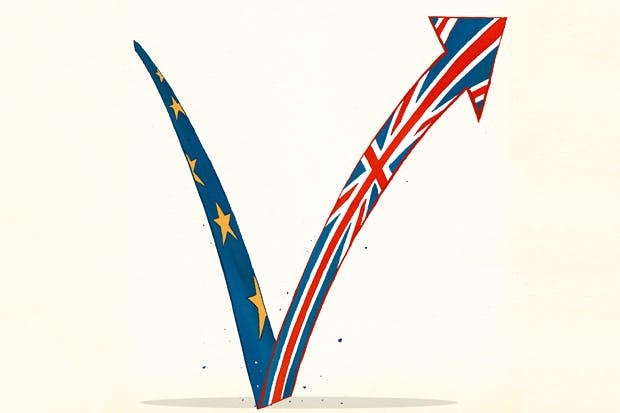We will be hopelessly out-witted by wily Brussels negotiators. We are unprepared for the scale of the task. We are about to be humiliated as we discover just how weak our hand is against a unified European Union that is determined to punish us for our foolishness in leaving the world’s largest trading bloc. The hardcore Remainer commentary on our negotiations over Brexit is so familiar it just about writes itself.
But in the last few days, there has been an interesting twist to that script. The UK, far from being the confused, divided and weak partner is the side coming up with the interesting innovative ideas. And it is the EU that looks shackled to a rigid, out-dated structure.
The first set of position papers on how the UK would like its relationship with the EU to develop after we have left, and how to manage that exit, have already been released, and more are expected over the next few weeks. They are covering everything from trade, to the Irish border, to citizen’s rights and technology. You can debate the merits, or otherwise of particular proposals and they have been predictably subjected to the usual withering scorn from Brussels. But one things stands out: the British side is thinking in a creative way.
Take trade for example. It may well be the case that we end up with some modest tariffs between the UK and EU under World Trade Organisation rules. But one paper proposes using IT to make sure the lorries still move swiftly from Dover to Calais, or vice-versa, with the forms filled electronically, and whatever tax is due collected automatically. Okay, okay, perhaps the computers won’t work as planned. But it is an original idea, and one that could be widely applied across the world. Or take this week’s paper on trade. One of its suggestions is that goods and services should be treated in the same way. That reflects the way business now often works – if you buy a Rolls-Royce aero engine, for example, you usually buy a service contract to keep it working safely at the same time (which is, you know, kind of important). Again, breaking down the boundaries between goods and services, and treating them as the same thing, is an original, interesting idea, and one that might be applicable around the world.
By contrast, what do we get from the EU? It sticks rigidly to every dogma of the last two decades. Free movement? It has to be applied exactly as it always has been. The Single Market? It’s perfect and can’t be tweaked for a major partner just outside. EU institutions? They can’t possibly be located outside the EU (Why the heck not? Don’t they have e-mail?). Flexibility? New thinking? There’s more chance of Mary Berry making a guest appearance on Channel 4’s version of Bake-Off than any sign of that from Brussels.
There is a lesson in that. In truth, if we approach it in the right way, Brexit can be a catalyst to think many issues afresh. There are already signs of that in the position papers, and there will be many more in the next few years. Meanwhile the EU sticks to an increasingly rigid, old-fashioned ideological set of rules. Which of those two models is more likely to succeed in the 2020’s? I know which one I’d put my money on.






Comments